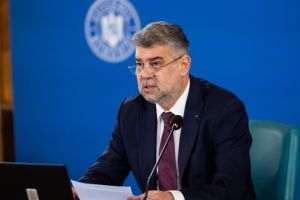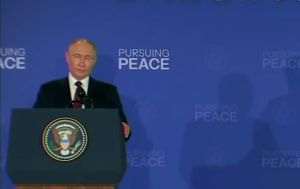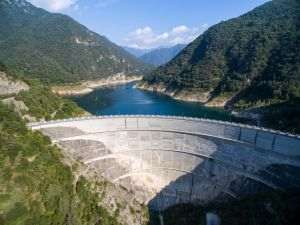Ukraine rules out any trade agreement that would allow Russian natural gas to continue to pass through its territory after the current transit agreement expires at the end of this year, Bloomberg reports, citing Kyiv's Energy Minister Herman Haluschenko.
According to the quoted source, the European Union and Ukraine have previously announced that they will not renegotiate the existing agreement, but some market participants are still optimistic about the possibility of private agreements to bring Russian gas to the EU bloc.
Herman Haluschenko denied this option, emphasizing: "I don't see this possibility. There is no possible solution on the table. We are ready to stop the deal. If someone said it's a critical issue for winter survival, that it's a security of supply issue, that's a different situation. But that's not the case now."
Instead of continuing to buy Russian gas, Herman Haluschenko urged several European countries to store gas in underground reservoirs in Ukraine. Haluschenko stated that his country has storage capacities of 15 billion cubic meters of gas, over the 14 billion cubic meters of Russian gas that passed through Ukraine last year. "I think that is correct. You cannot say that we cannot live without Russian gas," the Ukrainian official emphasized.
Following the invasion of Ukraine, Russia cut off most of its gas pipelines to Europe, but some Russian gas continues to flow through Ukraine. These deliveries cover most of the gas demand in countries such as Austria, Hungary and Slovakia.
Gas futures for delivery in the first quarter of 2025 have fallen nearly 15% since the start of this year, a development that suggests there is confidence that there will be some mechanism to allow Russian gas supplies to continue even after the agreement of transit through Ukraine will expire, notes Bloomberg.
Before the war, the Russian giant Gazprom exported approximately 177 billion cubic meters of gas annually, through several pipelines, to its key markets in Europe and Turkey, and the loss of the transit route through Ukraine would not have a significant impact. With most routes closed, deliveries through Ukraine accounted for nearly 30 percent of Gazprom's regional exports and about half of all flows to European countries, Sinara Bank analysts said last year.
Russian natural gas continues to reach the EU via Turkey, and Russia is also the second largest supplier of liquefied natural gas in Western Europe, after the USA. EU officials highlighted the fact that the EU bloc should reduce its dependence on Russian gas, but did not impose sanctions regarding this chapter.
Last year, abundant supplies of Russian gas allowed Austria, one of Gazprom's oldest customers in Western Europe, to increase its consumption. The Austrian energy group OMV has a long-term supply contract with Russia, which expires in 2040, and which obliges it to buy the gas that reaches the Austrian border. In December 2023, Gazprom covered 98% of Austria's gas needs.






























































